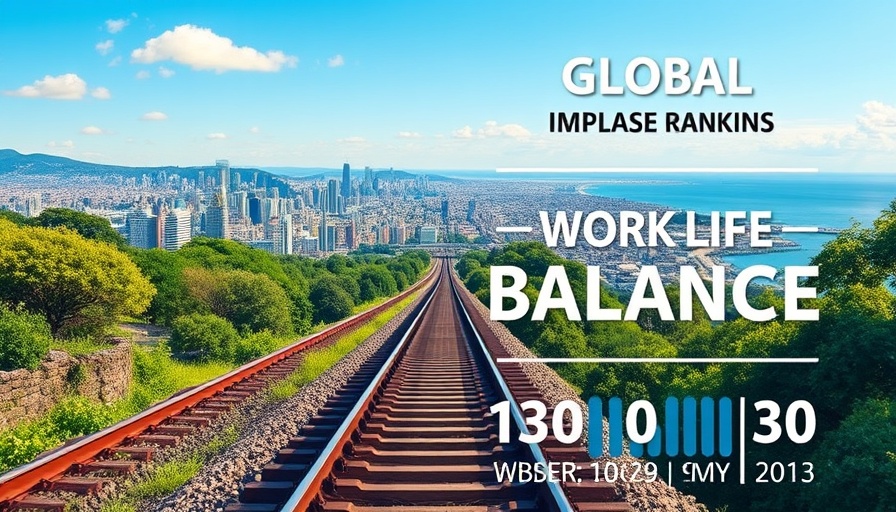
New Zealand's Continued Excellence in Work-Life Balance
In the race for the best work-life balance in the world, New Zealand has claimed the top spot for 2025, marking its impressive third consecutive year in the lead. According to Remote's Global Life-Work Balance Index 2025, New Zealand achieved a remarkable score of 86.87 out of 100—an indicator of its commitment to employee well-being across a variety of metrics.
What Makes New Zealand Stand Out?
So, what exactly makes New Zealand the beacon of work-life balance? The Remote report highlights several factors, including statutory annual leave, public happiness, healthcare quality, and minimum wage. While New Zealand may not be number one in every category, it scores consistently well across these areas. For instance, the country excels in its generous policies surrounding leave entitlements and promotes a safe environment for all individuals. Public sentiment is notably high, contributing to a national culture where happiness is prioritized.
Comparing Work-Life Balance in the World
New Zealand is joined by other countries in the top 10, primarily from Europe. Countries like Ireland (81.17), Belgium (75.91), and Germany (74.65) also show commendable results in work-life balance. Meanwhile, Australia's ranking at number eight (72.10) is attributed to its laid-back lifestyle and short work hours averaging around 32.39 per week, reflecting the country’s culture of openness and egalitarianism.
The American Work Culture Has a Long Way to Go
While New Zealand and many European nations lead in fostering a healthy work-life balance, the United States finds itself at the opposite end of the spectrum, ranking 59th out of 60 countries assessed. The report attributes this to several factors, including declining public safety and lowering scores for LGBTQ+ inclusivity. Such issues create an environment where burnout risks are significantly higher, elevating it as a serious concern for American workers.
Why Work-Life Balance Matters Now More Than Ever
With remote work becoming a staple in many industries, the demand for work-life balance is becoming more prevalent. A recent study indicated that workplace flexibility has eclipsed salary as the top motivator for employees globally. As boundaries blur due to technology and hybrid working arrangements, balancing professional demands with personal life is crucial for mental health and well-being.
Paths for Improvement in Work-Life Balance
Remote emphasizes that although countries like New Zealand and those in Europe are achieving remarkable employee-first policies, nations like the U.S. risk creating a talent drain due to a relentless culture that prioritizes long hours over wellness. As workers increasingly seek environments that respect both their professional and personal lives, American companies may need to rethink their corporate strategies to retain their workforce.
Inspiring Change: What Can You Do?
For employees feeling the pressure of work obligations, advocating for better work-life balance in your own workplace can start with small changes. Consider engaging in open conversations with management about the importance of flexibility and creating a supportive work culture. Also, practicing self-care along with prioritizing mental health can contribute positively to sustaining a balanced life.
Encouragement to Advocate for Balance
Understanding and advocating for work-life balance is not only beneficial for individual well-being but contributes to a healthier, more effective workforce overall. As the spotlight shines on countries like New Zealand that champion these values, it's uplifting to see the movement supporting employee rights and happiness evolving worldwide.
 Add Row
Add Row  Add
Add 




 Add Row
Add Row  Add
Add 

Write A Comment